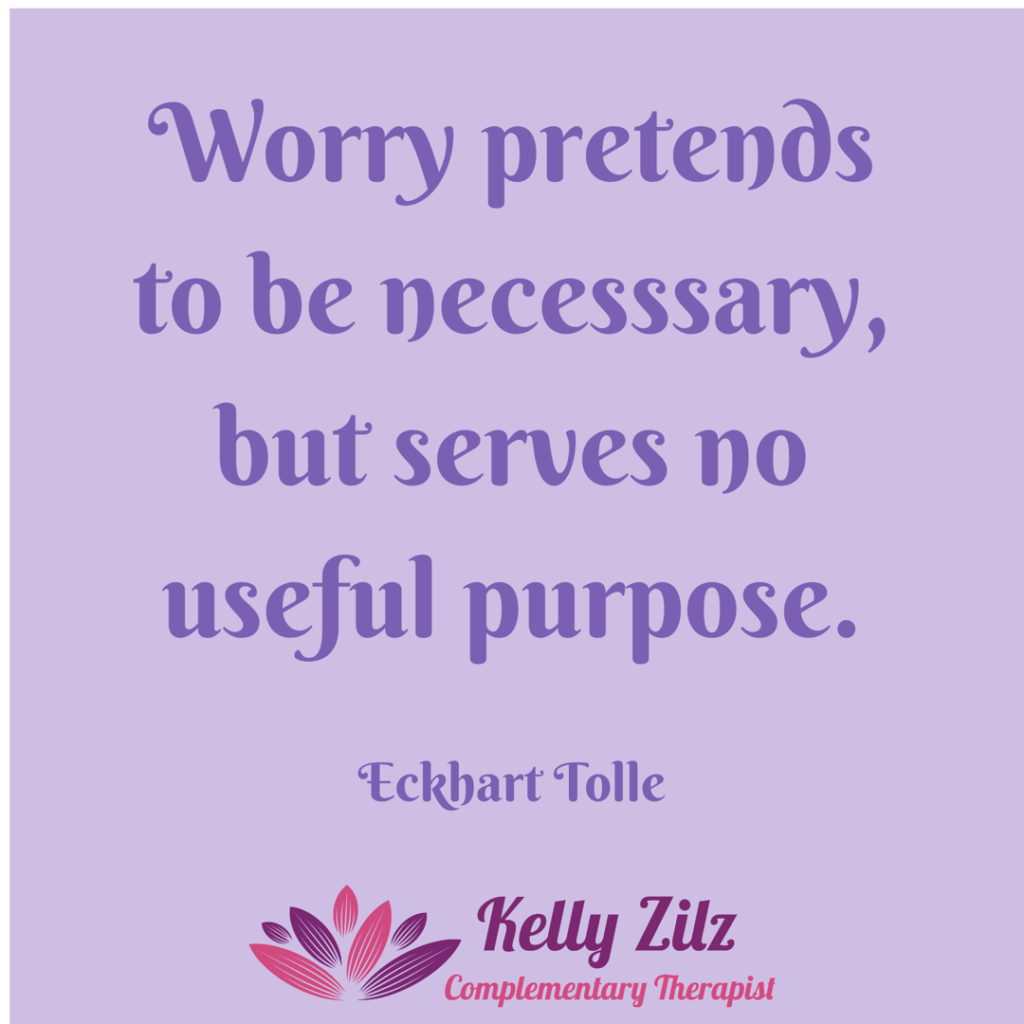in this month’s blog, we are going to look into anxiety. It will hopefully answer the question what is anxiety? I will share my own personal anxiety story and will discuss how I tackled my diagnosis of having an anxiety disorder and the steps I took in order to manage it.
What is anxiety?
Firstly, the dictionary definition of anxiety is;
‘a feeling of worry, nervousness, or unease about something with an uncertain outcome.’
According to the Mayo Clinic website, common symptoms of anxiety include;
- Feeling nervous, restless or tense.
- Having a sense of impending danger, panic or doom.
- Having an increased heart rate.
- Breathing rapidly (hyperventilation)
- Sweating.
- Trembling.
- Feeling weak or tired.
- Trouble concentrating or thinking about anything other than the present worry
So how do you know that you are suffering from an anxiety disorder rather than just feeling generally anxious? After all, we all feel anxious from time to time, right? The way I see it, if you are suffering from a collection of these symptoms short term or long term and they are manifesting in physical symptoms and/or are negatively impacting your life in any way then anxiety is an issue for you. Your brain could be in overdrive all of the time, you could find yourself worrying about things that others may see as being trivial and also you could prone to thinking irrationally. If any of these are the case, then it’s definitely worth looking into learning how you can deal with your anxiety and learn how to manage its symptoms in order to give you a more fulfilled and ultimately a less anxious life.

My Anxiety Story
I can relate to each one of these symptoms listed above from an early age. I finally got diagnosed with anxiety around 6 years ago, although it has negatively impacted my life since childhood. It’s not just the case of being a ‘stress head’ or a ‘worrier’, which is the assumption of many people. Anxiety disorder is a genuine mental condition, where your brain struggles to process thoughts rationally and the symptoms can manifest into physical symptoms and it can slowly take over your life unless you learn to manage it properly.
I was an insomniac as a child and young adult, I would lay awake all night, panicking about the next day, getting more and more anxious during the night until I felt nauseous and would often have stomach issues as a result of getting myself worked up so much. The things I would worry about would seem trivial to a lot of people but to me they were massive issues inside my head and I would often only see the worst case scenarios and would worry non -stop about all kinds of future situations. Sounds familiar? It was exhausting, years of very little sleep, an overactive mind and worrying about many future things, when in reality the worries were often unfounded and irrational, but when you have serious anxiety, you do not realise this at the time. It’s not until you get help and learn otherwise, when you can start to change your thought processes.
I also suffered from panic attacks following my kidney transplant in 2000, these lasted for a few years and I honestly thought I was going to die during each one. I should have gone to the doctor during that time, but I didn’t, which is something I now really regret.
As an adult, the most mundane things would send me into a blind panic, I would worry for hours beforehand about various scenarios, and would often turn down invites and work opportunities due to the feeling that my anxiety would get the better of me. The brain-gut connection is a definite thing and when I am anxious it affects my digestion system in a really negative way. During a bout of anxiety, my IBS would sometimes flare up badly and often I would not be able leave the house because of it. It really was a hugely stressful time.
How I Took Control of My Anxiety
I finally went to see a doctor in my mid 30’s and got a diagnosis. I went down the talking therapies route and had extensive counselling to help me to understand my thought processes and more importantly to help me to have a toolkit in place for when I was feeling anxious.
I never got prescribed any medication to manage my anxiety as the talking therapies worked so well for me. However, if the doctor recommends medication, do your research and don’t be ashamed to take it. Everyone has different needs and these needs might change long-term so it’s best to be open minded when it comes to finding treatment and solutions for your anxiety. CBT was never offered to me but I have done a lot of self-help with CBT and in hindsight, I would have benefited massively from attending group sessions. If you are offered CBT, I would seriously consider taking it up as it can be life changing.
Toolkit
This is my personal toolkit for anxiety and for when I feel anxious. Please note that not all of these will be relevant to everyone but I thought that I’d share these with you as some may be useful:-
- Get out in nature– walking really helps me with my anxiety and 120 minutes of being outdoors a week, has been proven to be massively beneficial for your mental health.
- Books– Knowledge is Power! I read a lot of CBT based books to get more of an understanding about how the mind works. This is where I learnt the term ’Catastrophising’ which is what I was constantly doing without realising it. I was visualising the worst-case scenario in my head and now that I knew I was doing this, I could look to change my thought patterns. More recently I have read ‘The ‘Anxiety Solution’ by Chloe Brotheridge, which is a book I found to be really useful, full of useful tips and exercises to do to help manage your anxiety. All of Ruby Wax’s books are fab as well. Also ‘The Power of Now’ by Eckhart Toille is a superb book about living in the present moment.
- Podcasts– there are so many mental health podcasts out there to listen to! A really good one is ‘The Calmer You’ podcast and also Dr Chatterjee’s ‘Feel Better, Live More’ is another good one.
- Meditate– five minutes of deep breathing or listening to a guided meditation. Being in the present moment and enjoying the now rather than worrying about the future is the key to beating anxiety.
- Challenge anxious thoughts– If you have an anxious thought, challenge these thoughts with questions like ‘will this matter in five years time?’, ‘am I thinking rationally?’, ‘what’s the worst that can happen?’, ‘what can I do now to make this better?’, ‘am I catastrophising?’
- Write down what you are anxious about– when you see it written down, it should make you think more rationally about the situation. This is especially good before you go to bed if you have some worries, write them down!
- Know your triggers– If you are prone to bouts of serious anxiety then identifying what sorts of things get you anxious can really help you to manage it. For example If you’re anxious about flying (this is a big one for me even though I am a regular flyer I still hate it!) you could put a plan in place to minimise the anxiety, such as watch some fear of flying youtube videos, do some deep breathing exercises when on the plane and using some aromatherapy oils to help to calm you down. If it’s public speaking, practice beforehand, have some prompt cards ready and be prepared, again deep breathing beforehand can help. It’s about pre-empting the anxiety and learning to manage the situation the best you can.
- Positive thinking and affirmations – The power of affirmations is incredible, I see using affirmations as a kind of ‘fake it till you make it’ approach! One I use a lot is ‘I am calm, I am safe.’ I keep saying it when I am not feeling calm and eventually, I actually feel calm. Affirmations is another blog post entirely, but there are plenty examples online, pinterest is a good site to search for affirmations.
- Holistic therapies– Book in for an Indian head massage, manicure, a facial or some reflexology. Or any form of holistic therapy to help manage your anxiety symptoms. Reflexology is amazing for aiding relaxation and helping to promote a restful sleep so it’s definitely worth trying if you’ve not done so already!
Conclusion
Thankfully my panic attack days and days of serious bouts of anxiety seem to be over and I know my mind a lot better than I used to thanks to a mixture of reading, researching, counselling, CBT and being aware of my triggers and having a toolkit in place for when anxiety attacks. Knowledge really is power and anxiety can most certainly be managed if you take steps to understand what it is that is making you anxious.
My biggest regret was not getting medical help earlier, as a teen when I really needed it. Instead I just struggled on. Please please please see a doctor if your mental health is suffering or if your anxiety is making you ill. There is honestly no judgement, mental health issues are much more common than you think and the doctor can really help you or point you in the direction of someone who can.
Thank you for reading this blog, hope you’ve found it helpful. See you soon x


